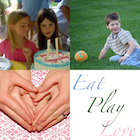
When I was in second grade I had a teacher who yelled. My teacher, Mrs. P, teased, she mocked and she embarrassed my classmates when they didn’t have the right answers. I often had the right answers, and the material that she taught came rather easily to me. But I remember feeling guilty. It never seemed fair that some of the other children worked so hard to get past that first reading level while I proudly moved through the rainbow of Early Readers. I would watch as Mrs. P conducted group lessons. She would use the strong students to embarrass the others, asking them why they didn’t know the answer if others had clearly mastered the material? She would pick on many of the students within the class (mostly the boys!) but one boy particularly stands out in my memory. Andrew was seated in the front row, working attentively to keep up – but he struggled. I squirmed as Mrs. P would mock Andrew as he would attempt to keep up. She would embarrass him, she would catch him off guard, and as he grew increasingly flustered, the correct responses fled further from his mind. Poor Andrew was trying his best, but his best was simply not good enough for Mrs. P.
This experience in 2nd Grade was in some ways perhaps, my first “calling” into the world of education. The first pedagogical lesson that I learned was that the way that a teacher treats the “worst” child in the class is the way that they have treated all of the students in the class. While I was never a direct victim of Mrs. P’s temper and mocking, I too experienced a stomach ache, felt bad for my friend Andrew, and was no doubt fearful that one day it might be me. If a teacher is somehow allowed to treat a classmate this way, who is to say that children cannot treat one another in that very same manner? And to the extent that chidren feeling safe is a key component to learning, there is no doubt that the climate of this classroom had a negative effect on the learning within the classroom.
The other powerful lesson that I experienced that year was that we are not all the same. We did not all find it equally easy to read that first chapter book, master the multiplication tables, or develop meaningful friendships. Children learn to read at 3, at 5 or at 8 – some with great ease and some with enormous effort. Children (and adults) are each unique, and we are each born with our own set of strengths and challenges. When we begin to understand ourselves and our children in this way, we are able to truly respect one another. We are all of equal importance and equal value, but we are not all the same. We must acknowledge and celebrate these differences if we want to truly honor and value one another.
Were Mrs. P to have acknowledged that Andrew was struggling to learn the material, she could have helped him rather than blamed him. Any good teacher would have wanted to help this little boy achieve the developmental and learning milestones of his 8-year old peers. But he might have needed a different setting, he might have needed a chance to digest the lessons in the quiet of his house, he might have needed to use cubes or even his fingers to unlock the challenges of multiplication. The shaming and the yelling brought him no closer to mastering the material, and it only made him feel small. This teacher also failed to honor and recognize all of Andrew’s strengths. Andrew was kind, he was sweet, he was handsome, he was one of the only boys who talked to the girls, he was a great artist, and he was hard working. Andrew had to show far more grit and perseverance than I did that year, as I whizzed through the work.
Acknowledging and appreciating differences is not easy. At our school we are asking our children, our teachers and our parents to create a world that is very different from my 2nd grade classroom. In the world we are trying to create, each child brings something unique to the classroom community. In this world, children know that a teacher may allow one child to sit on a chair during meeting while others are expected to sit on their own on the rug. In this world, we know that some children can write their names with ease, or draw a self-portrait with multiple details, while another struggles to grasp the writing implement. In this world there are students who come to school with special help (SEITS – special education itinerant teachers) and there are students who go to speech therapists to help them find their words. It is a complex world our children live in, but I believe that we are going to raise children who will be better teachers, better parents, better employers, better employees and better partners, because they will understand that while we are not all the same, we all deserve respect and dignity.
Shabbat Shalom
- Gratitude - October 31, 2014
- The Tower Of Babel - October 24, 2014
- The World Was Created For My Sake… I Am But Dust And Ashes - October 3, 2014
